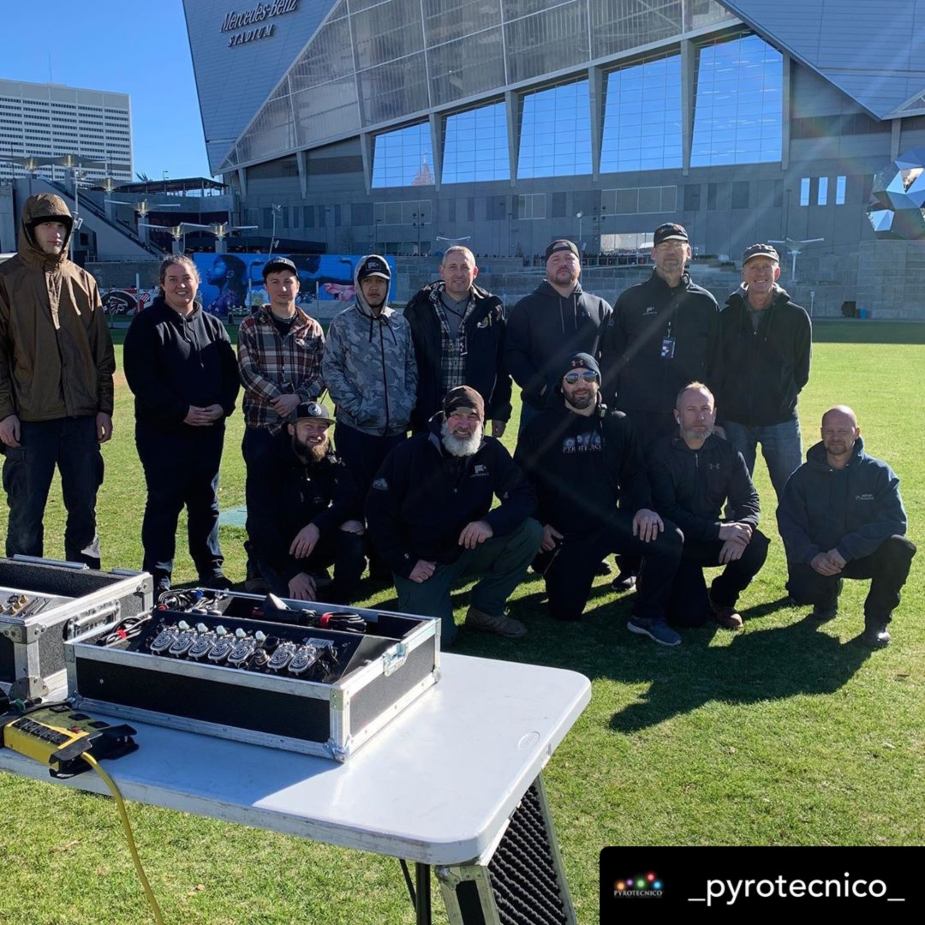Pandemic Brings Highs and Lows to Region’s Fireworks Companies
YOUNGSTOWN, Ohio — It’s boom or bust in the fireworks industry this year.
The coronavirus has caused one local company’s sales to soar and another’s to fizzle out. The Mahoning Valley is home to a few fireworks companies, and how they are weathering the pandemic depends on their product focus.
Youngstown-based Phantom Fireworks is a retailer that sells consumer-grade fireworks at its 84 stores and 1,200 temporary stands across the country, not to mention in hundreds of chain stores in certain states. Its sales always reach a crescendo as the Fourth of July nears but it’s on a record pace this year. A populace that has been urged to stay at home is eager to buy up firecrackers, fountains and bottle rockets.
“The numbers we’re seeing so far, if translated to the rest of the season, will blow away any year,” said Alan Zoldan, executive vice president of Phantom.
Meanwhile, pyrotechnics companies that stage massive public fireworks displays at festivals and for the Fourth of July are among the hardest hit by pandemic-related cancellations. Companies such as New Castle, Pa.-based Pyrotecnico have seen their revenue plummet this year. Through their trade group, the American Pyrotechnics Association, Pyrotrecnico is lobbying Congress for financial help.
“I’ve always said the fireworks business is recession-proof,” said Stephen Vitale, president and CEO of Pyrotecnico. “But it’s not pandemic proof. It hit us incredibly hard.”
His company has been forced to lay off most workers.
Pyrotecnico’s income is evenly split between public fireworks displays, and pyrotechnical effects for concerts, sporting events and touring shows.
“We anticipate losing 70% of our revenues,” Vitale said. “We’ve seen massive amounts of cancellations and people are still uncomfortable about hosting public events.”
Pyrotecnico has seen a slight uptick in shows in recent weeks but numbers are still not close to normal.
“We do over 3,000 shows annually, primarily east of the Mississippi,” Vitale said. “Ohio, Pennsylvania, Florida and Texas are our best states, and in that order. We usually do about 700 shows across the country for the Fourth of July. This year, it’s more like 160.”
The Fourth of July makes up about 45% of Pyrotecnico’s public display business.

The company’s non-public business relies heavily on sporting events. “Baseball is big for us and there is no baseball,” Vitale said. His company provides pyrotechnics for the Cleveland Indians, Mahoning Valley Scrappers and Akron Rubber Ducks. It also does special effects at Cleveland Cavaliers games.
Pyrotecnico’s rock festival clients include Coachella, Lollapalooza and Electric Daisy Carnival. “If you see pyro at a music fest, it’s probably Pyrotecnico,” Vitale said.
The company also provides effects for musical tours by Justin Bieber, The Chainsmokers, Gwen Stefani, Christina Aguilera and Dan + Shay, as well as the WWE.
“These won’t bounce back until next year,” Vitale said.
Pyrotecnico has about 200 full-time workers, including 100 in New Castle, and has laid off more than 60% of them. “We did get PPP money but that only lasts so long,” Vitale said. “We’re working hard with our congressmen and senators to get another financial package for the fireworks industry. We’re trying to get our voice out.”
Nationwide, some150 small, family businesses such as Pyrotecnico comprise the fireworks display industry, according to the APA trade group.
It’s a hyper-seasonal industry, points out Julie L. Heckman, executive director of the APA. Without Independence Day celebrations, the companies’ livelihood is threatened.
“Independence Day only comes once per year,” Heckman said in a press release. “There is no do-over for the Fourth of July.”
The APA is urging Congress to help fireworks display businesses by modifying the current Economic Injury Disaster Loan program offered by the Small Business Administration with low interest and forgivable loans “to help them bridge the gap of losing more than 80% of their income as a result of COVID-19,” said Heckman.
Looking into the future, Pyrotecnico’s Vitale says his industry will bounce back but first it has to get through the current crisis. “We are a resilient industry … but we need another stimulus package,” he said.
Pyrotecnico is holding a high level of inventory, said Vitale, which will likely create some strain later because the shelf life of some stored fireworks will expire. His company imports most of its fireworks from China.
New Castle, Pa., is home to Zambelli Fireworks, which also focuses on public display. Zambelli officials did not respond to requests to be interviewed for this article.
The story is much different at Phantom Fireworks, where the pandemic has made this season even more booming than usual.
The consumer fireworks retailer based in Youngstown doesn’t compete with Pyrotecnico in the display sector, and the main problems it faced because of the pandemic have been about keeping up with demand. Phantom gets a crush of business this time of year that peaks as the Fourth of July draws near, and that means social distancing will be an issue.
“Social distancing will have to be dealt with,” said Phantom Vice President Zoldan. “We are encouraging customers to get in here early. The first few days in July, there are always long lines and that can’t happen this year.”
The company is encouraging people to buy early, or take advantage of online shopping and curbside pickup at PhantomCurbside.com.
The nation’s top consumer fireworks retailer, with stores in 15 states, maintains its headquarters on Belmont Avenue in Youngstown, with facilities on Larchmont Road in Warren, and Martin Luther King Jr. Boulevard in Youngstown.
The company has more than 100 workers at its headquarters. Another 100 people are employed at its local facilities and the company is looking to hire more. “We’re struggling to find enough workers, like most companies,” said Zoldan, noting Phantom is now running a second shift at its warehouse.
The coronavirus emerged in Wuhan, China, in late 2019, throwing a scare into Phantom that turned out to be unfounded. China’s fireworks producing region is centered around Hunan, which is about 100 miles away.
“The Chinese have a three-week work stoppage for Chinese New Year (which started Jan. 25) and [our shipments] start to arrive afterward, and go through the end of May.
“This year, there was an explosion at a fireworks factory in December that didn’t produce for the United States, but they shut down all factories for re-inspection,” he continued. “Then, the Communist Party had its 75th anniversary, so they shut down the factories again. When the coronavirus kicked in, and they went into lockdown during Chinese New Year and extended it to six weeks, from January to March. We were concerned because Hunan is close to Wuhan, but the production region had no major effects. They produced unbelievably well, and they shipped out our merchandise.”
As the pandemic reached the United States, jittery Chinese shippers required Phantom to sign a form promising to pay for any merchandise that was held up at U.S. ports due to the virus.
“We had to bear the risk for hundreds of thousands of dollars, but the merchandise got through,” Zoldan said. “We were fortunate, because we had merchandise on the water later than normal, but our inventory levels in the past week passed that of last year. It was a late shipping season, but we’re in good shape.”
The pandemic did cause an early but temporary downturn in Phantom sales.
“It’s been a wild year, and we’re still in the middle of it, but we’ve been fortunate,” Zoldan said. “We lost some sales from mid-April to mid-May, but we made up all that ground in the past week and then moved ahead.”
Zoldan said Phantom is in a good place right now.
“We have the merchandise to sell and unprecedented demand,” he said.
Pictured at top: A ground-level view of a fireworks display by Pyrotecnico. (Image: Doug Van Sant)
Copyright 2024 The Business Journal, Youngstown, Ohio.



